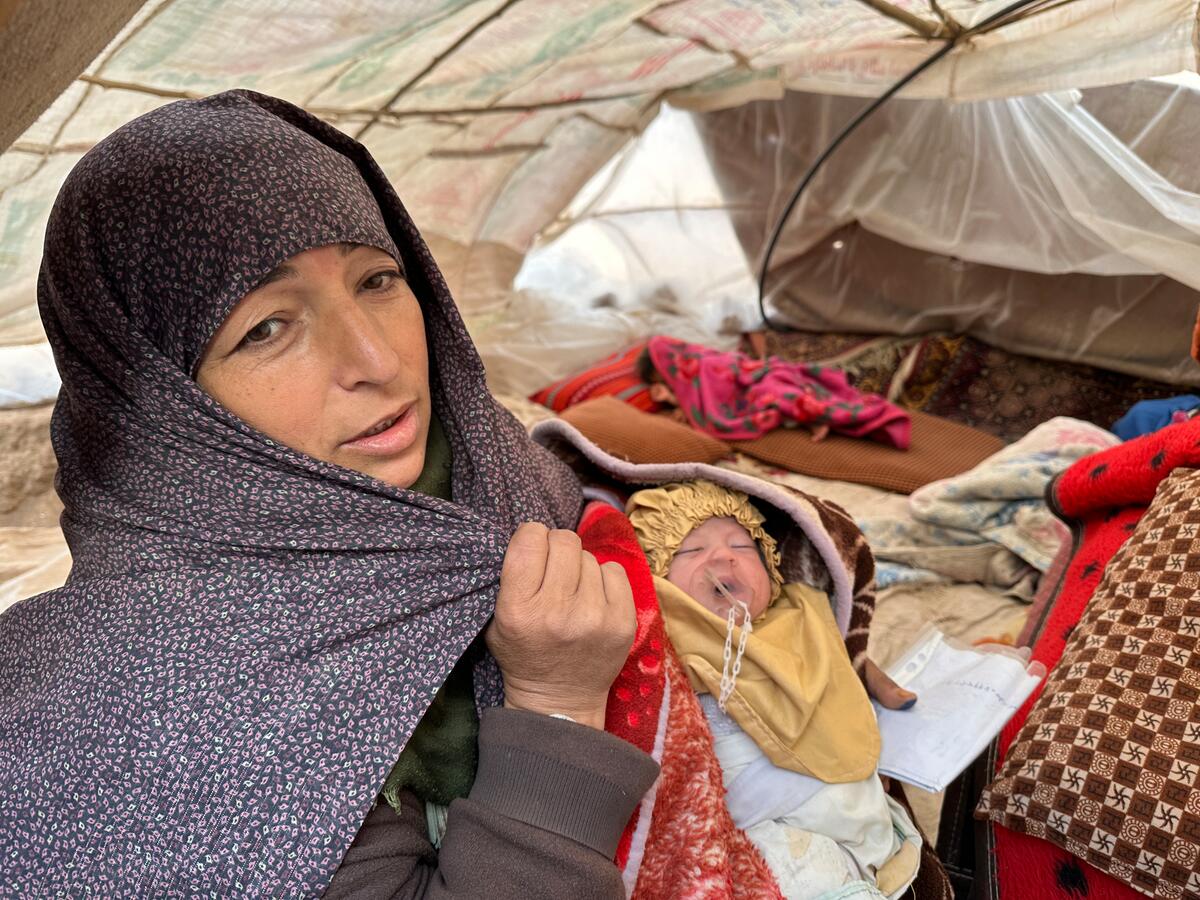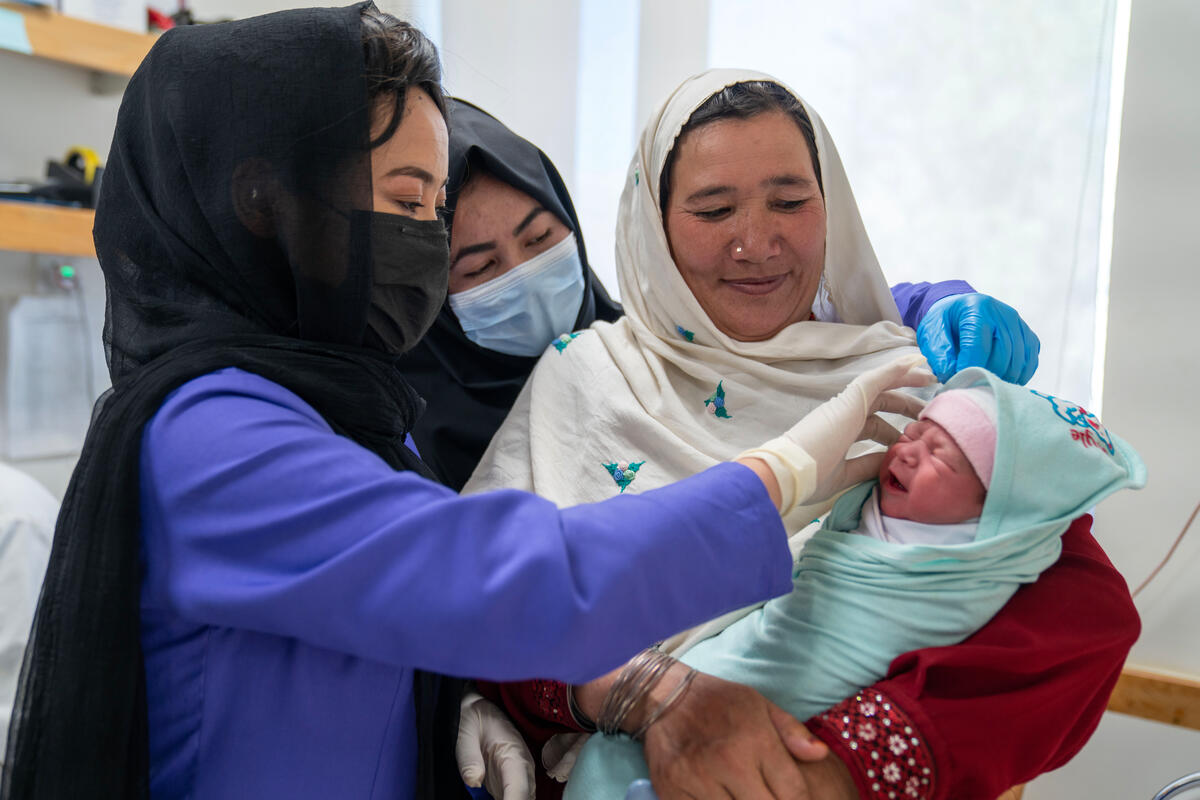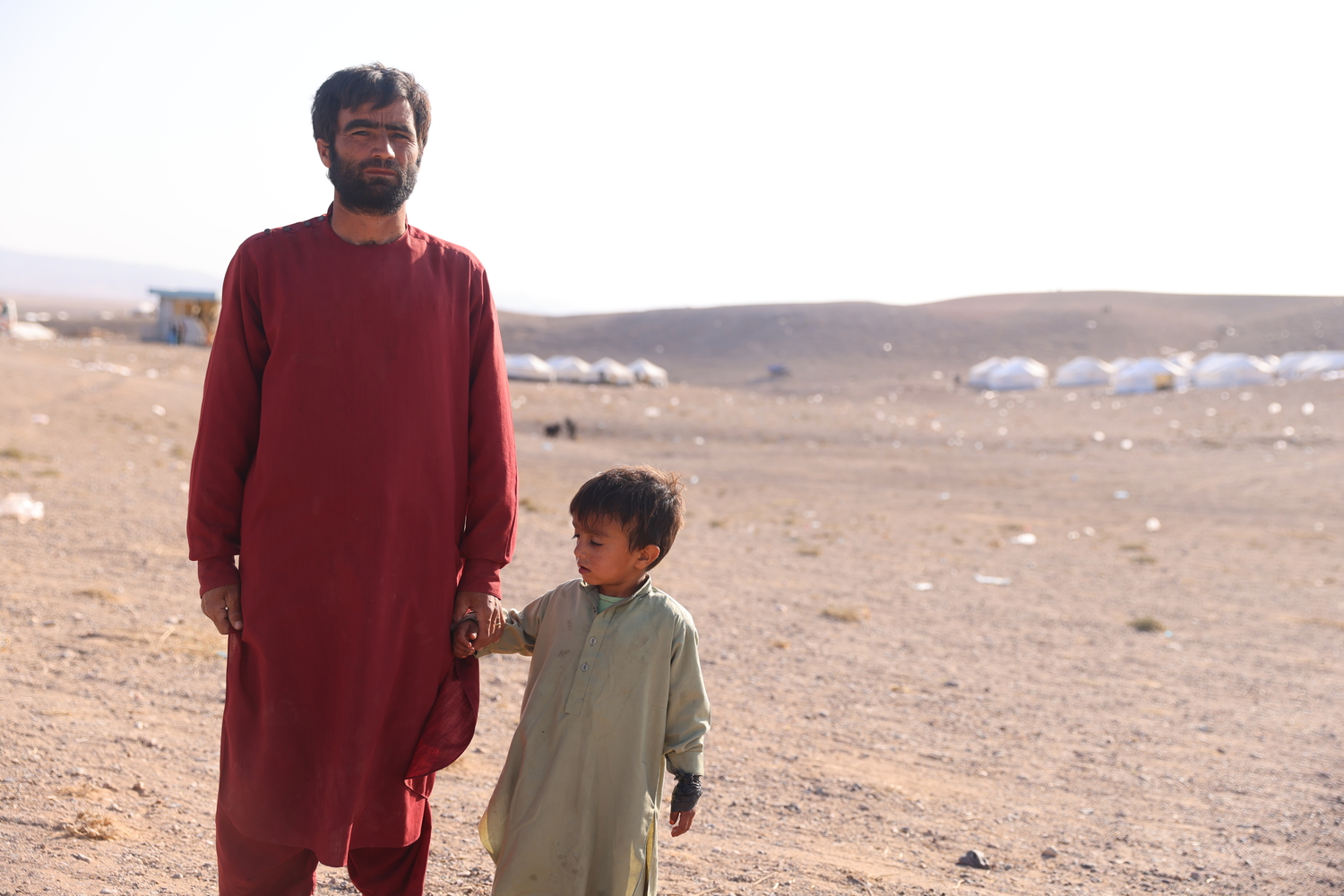Afghanistan security: High Commissioner Lubbers' concerns
Afghanistan security: High Commissioner Lubbers' concerns
High Commissioner Ruud Lubbers remains very concerned at the deterioration of the security situation in some parts of Afghanistan, most recently by fighting in the Herat region which affected the return of thousands of refugees this week.
On Tuesday, the fighting in the Herat area prompted UNHCR to suspend its daily repatriation convoys from Iran, requiring the provision of emergency help to some 13,000 stranded returnees in Iran and Afghanistan. Some 9,500 of them were stuck in Herat in a UNHCR transit camp designed to accommodate no more than 4,000, while another 3,500 had to wait on the Iranian side of the border. Following a ceasefire, we are now working to clear the backlog. About 500 returnees were still reported in Herat this morning awaiting onward movement, and a first group of some 1,800 Afghan returnees stranded on the Iranian side of the border at Dogharoun were expected to cross to Herat today. The rest of the group stranded on the Iranian side will move tomorrow, and normal returns from Iran will resume on Sunday.
Herat is the first point of call for Afghan refugees returning from Iran with the help of UNHCR. From there, they proceed to their final destination in every region of Afghanistan. Earlier this week, the returnees found themselves unable to continue with their travel because of the fighting between troops of Herat governor Ismael Khan and militias loyal to a rival leader (Amanullah).
UNHCR worked around the clock to assist those stranded, both in Iran and in Afghanistan, and to provide them with shelter, food and water, and access to medical services. On the Iranian side of the border, the fighting in Herat had stranded some 3,500 refugees travelling on 93 buses from eight Iranian cities to the Afghan border.
The High Commissioner notes with concern that this week's temporary suspension of UNHCR-assisted convoys and other recent security problems in Afghanistan have coincided with an upsurge in the numbers of refugees wanting to go home. He stresses that those who have made the brave choice to return home deserve peace and security.
The insecurity in Afghanistan has also placed enormous constraints on humanitarian staff in the country. Last night, for example, the U.N. compound in Farah, in south-western Afghanistan, was attacked with explosive devices. Some Afghan police were reportedly wounded, but U.N. staff were apparently unharmed and have been evacuated. Earlier this month, two employees of the German NGO, Malteser, one of UNHCR's partners, were killed near Gardez, leading UNHCR to scale down its activities in the south-eastern region. In May, the French NGO Médecins sans Frontières, also an implementing partner, withdrew from Afghanistan after five of its staff were killed in Badgis province. Last November, UNHCR's Bettina Goislard was shot and killed in Ghazni.
There has been a particularly marked increase in the number of Afghans choosing to return from Iran - up to 4,000 a day. UNHCR has been running a voluntary repatriation programme for Afghan refugees in both Iran and Pakistan since April 2002. More than 3.6 million Afghans have returned home since then, almost 1 million from Iran.








